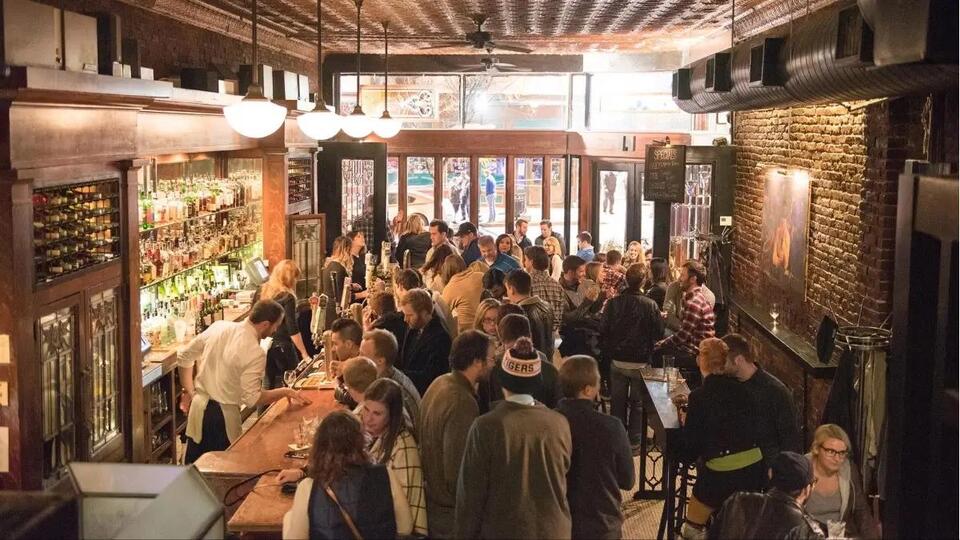Allegations of Racial Discrimination in Kansas City’s Westport District
Overview of the Allegations
Several Black business owners in Kansas City, Missouri, are raising serious concerns over alleged racial discrimination by the Westport Community Improvement District (CID) and its predominantly white board members. These entrepreneurs claim that systemic actions taken by the CID effectively hindered their ability to operate, leading to the shutdown of their businesses or forcing them to end their lease agreements. As the community grapples with these allegations, the lawsuit highlights broader issues of racial inequality in commercial spaces.
The Lawsuit
According to local news reports, three Black-owned businesses have initiated a lawsuit against the CID, claiming racial discrimination and various civil rights violations. This legal challenge reveals a stark discrepancy in representation, as the lawsuit points out that out of the 251 business owners operating in the Westport district, very few are Black. This lack of diversity raises questions about the inclusivity of the area, once celebrated for its dynamic nightlife and community spirit.
The Experiences of Individual Business Owners
Robert Thorpe and The Sourze
One of the notable plaintiffs, Robert Thorpe, owner of an art gallery and event space called The Sourze, claims he faced discrimination when attempting to expand his business. Despite securing approval in 2020 to open a new restaurant concept, “The Daiquiri Shop,” Thorpe alleges that CID officials later retracted their support. They argued that Thorpe’s venture would “cannibalize” existing businesses. Furthermore, Thorpe’s business was stigmatized by comments suggesting that patrons from the hip-hop community would lead to violence. Such stereotypes not only hindered Thorpe’s growth but ultimately contributed to the failure of his operations.
Christopher Lee and Euphoric
Another business owner, Christopher Lee, faced a series of challenges when setting up his restaurant, Euphoric. After signing a 10-year lease, Lee reports being subjected to additional scrutiny that his white counterparts did not face, including being asked to take a personality test. Upon promoting his restaurant to the community, he alleges that CID board members interfered directly with his lease, pressuring his landlord to terminate the agreement due to concerns about the type of clientele Euphoric would attract. The landlord’s comments suggested a fear of violence linked to a younger, hip-hop audience, revealing deep-rooted biases within the community.
D’Mario Gray and UnicKC
D’Mario Gray, another plaintiff, encountered a similar fate with his business, UnicKC. After signing a lease agreement, Gray’s compliance with a noncompete clause was challenged. Concerns voiced by neighboring businesses, particularly the owners of the Denver Biscuit Company, about the young R&B and hip-hop crowd Gray intended to serve ultimately led to a cease-and-desist order. Gray claims this action was unfounded, yet it resulted in a significant financial burden, forcing him to walk away from his leased space.
Systemic Issues and Broader Implications
“Good Neighbor” Agreements
The lawsuit also reveals disturbing allegations about the tactics employed by the CID. Recordings reportedly exist of board members discussing strategies to keep Black businesses in check. These conversations suggest a culture of fear among business owners, particularly those who are Black, as deficiencies in support and encouragement have led to feelings of being systematically marginalized. The concern that CID members would “do everything we can to put them out of business” reflects a troubling mentality that underlines broader societal issues of race and equity in business.
Community Response
The CID has categorically denied these allegations, asserting its commitment to creating a diverse and inclusive atmosphere in Westport. They emphasize a long-standing dedication to cultivating a neighborhood celebrated for its blend of cultures and communities. However, the stark contrast between their stated mission and the experiences recounted in the lawsuit calls into question the authenticity of their commitment to diversity.
The Call for Justice
With demands for $70 million in damages, the plaintiffs are not merely seeking restitution for lost revenue and wages; they are advocating for fundamental changes in how businesses are managed within the Westport community. The outcome of this lawsuit could set precedents affecting not only the involved parties but the broader landscape regarding racial equity and the support of minority-owned businesses in urban environments.
Conclusion
As the legal proceedings move forward, the Kansas City community watches closely. The issues raised in this case extend beyond individual experiences; they touch on the historical complexities of race, business, and community dynamics. The allegations against the Westport CID serve as a critical reminder of the ongoing struggles many minority business owners face in striving for equality and representation in the marketplace.



